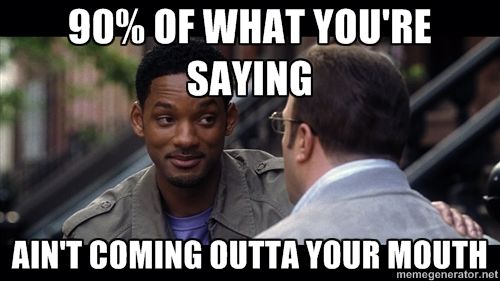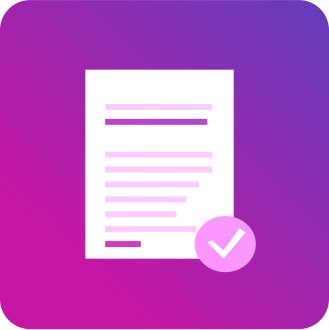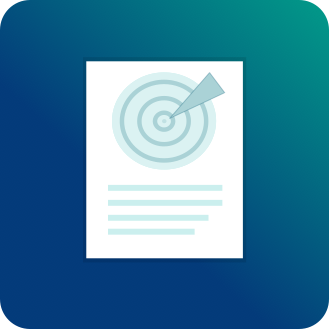Good afternoon, friends. it's Rohan with the latest edition of Coached — your personal mentorship email that takes a few minutes to read, but speeds up your career by years. |
In today's Mentor's Corner, we're exploring body language. Most of what we 'say' isn't with words at all. How we stand, look at people, or move can greatly impact how others see us. So today I'll run you through some tweaks you can make to appear more confident and lead with authority. |
To my loyal readers: I've been much more active on LinkedIn lately, sharing bite-sized, candid career advice for quick boosts throughout your week. It's an easy way to stay motivated and keep your career on track. So if you like my writing, follow me on LinkedIn and say hi! |
P.S. If you missed my last email, I changed the name of this email series to Coached to better reflect what we do. If you're new here or were forwarded this, subscribe free at Coached.com. |
Estimated read time: 4 minutes 35 seconds |
|
📈 Mentor's Corner Insights put together by me or coaches who usually charge $750+/hour and mentor senior execs. One practical lesson a week that will make a measurable impact on your career, delivered right to you — for $0. |
|
|
Body language mistakes to avoid at work |
We've all heard the saying that 90-something percent of communication is non-verbal. |
But what does that actually mean? |
Well, take three scenarios: |
Scenario 1: |
You're at a bar with friends, and your popular friend arrives 10 minutes late. You're the first to spot him coming in, and you shout to everyone with a grin, "Here's Johnny!" |
Scenario 2: |
You're working on a project with colleagues, and your overbearing boss, who everyone hates, walks in. You roll your eyes and mutter, "Here's Johnny…" |
Scenario 3: |
Jack Torrance in The Shining smashes the bathroom door open with an axe, and announces with the creepiest smile imaginable, "Here's Johnny!" |
What's the lesson here? |
In all three cases, the verbal information is the same, but the message couldn't be more different. And that's because the non-verbals determine what the verbals mean. |
 | (Hitch is one of my all-time favorites and Will Smith's slap isn't going to change that) |
|
A fake compliment makes you feel disgusted, but the same compliment said with a real smile and a touch on the shoulder makes you feel special. |
So.. |
Given how important non-verbals are, what are the things we should watch out for at work? |
Here's a few of them: |
🧎🏻 Posture |
When animals feel weak, they make themselves smaller. Think of what happens when you shout at a dog for eating cake off the countertop - he comes back with his tail between his legs, hugging the floor. |
We humans do something similar by rounding our shoulders and slouching. |
This matters because if your posture is terrible, you're sending weak signals out. And if you're sending weak signals out, you'll find it hard to be seen as a leader. People don't follow the weak. |
=> Improve your posture! |
As the saying goes, stand up straight with your shoulders back. No slouching. |
(This 10-min YouTube video of posture correction exercises might help.) |
|
| | | | …by the way, if you use LinkedIn, go to my profile and hit the 'Follow' button. I share a mix of practical career strategy and mid-week motivation — stuff that makes it easy to keep your career on track.
Topics coming up this week: job search and LinkedIn tricks, how to disagree with your manager + more. See you there. | alright, let's get back to my essay… |
| |
| | |
|
👁️ Michael Caine's acting secret |
In a masterclass, Michael Caine shared the secret of how he captivated audiences for 70 years in his legendary acting career: |
Eye contact. |
Caine explains that the more you blink, the less people take you seriously. By purposefully not blinking, his words took on an air of gravitas. (vid here) |
This highlights the huge connection between eye contact & emotion which we sense intuitively. When we feel guilty, for example, it's hard to look people in the eyes. |
Bottom line: |
If you don't look up at who you're talking to, it doesn't matter how good your ideas are. People might feel something's off. So: |
=> Make eye contact. |
🐢 Slow your speech |
Even though this might feel a bit off-track since we're focusing on non-verbal cues, how fast or slow you talk actually sends a big message without saying anything different. It's like your speech pace is a non-verbal cue all by itself. |
The more nervous you are, the faster you'll usually speak. And the faster you speak, the less confident you'll seem. |
Make a conscious effort to speak slower, and you'll automatically seem more 'in control'. Plus, whoever's listening to you will better digest what you're saying. It also gives you the time to choose your words more carefully. |
|
Also, get comfortable with silence and taking pauses between sentences. |
😱 Avoid exaggerated gestures or overreactions |
In work settings, it's often a sign of composure to keep your gestures measured and your expressions in check. |
For example: |
If I brought bad news to a very inexperienced manager, they might react by instantly throwing their hands up in the air and exclaiming, "WTF? NO!" |
|
On the flipside: |
An experienced manager who's in control of their emotions and body language would likely react differently. They might nod, say "hmm", take a silent pause, and then reply in a more measured way. |
|
You can practice getting better at this by paying attention to how you react to everyday situations at work. Make a conscious effort to pause before responding, especially when surprised or upset. Over time, this habit will help you maintain a more composed demeanor, turning measured reactions into your second nature. |
|
Here are a few more non-verbals to pay attention to (I'll keep these short!): |
|
If that struck a chord, please do any of the following: |
Leave a review for Coached :-) Reply with an idea of how I can make the next email better. Tell a friend about these emails. Here's a link to share it.
|
If it's not already obvious, this year I want to make a much bigger impact on people's careers. And the way to do that is to reach more people. It's why I started writing on LinkedIn, rebranded this email series and ask you to share it with your friends/family. So if you can help me get closer to that goal, I'd really appreciate it. Thank you! |
|
From Our Team Tried all our AI tools? | Want a better resume? Upload it to Score My Resume and get expert feedback, instantly. You'll find out if and where your resume falls short. Get your resume review |  |
| Want to make your LinkedIn profile work for you? LinkedIn Review will show you how to optimize it so you get more leads, jobs and opportunities through LinkedIn. Optimize your profile |  |
| Want to get past the ATS? Targeted Resume will check if your resume has the right keywords. Target your resume |  |
| |
|
|
|
|
|
 | 🤣 |
|
 | I'm convinced 'as per my last email' is the most passive aggressive thing you can say in an email to someone 🤣 |
|
|
|
🔎 Speed Up Your Job Search One actionable piece of advice to help you hack your job search. |
How to show leadership skills on your resume |
Read the full article here. |
🧐 Especially if you're applying for mid- to senior-level roles or ones that involve managing others, hiring managers will want to see evidence of leadership or management skills on your resume. |
❌ You can't just say things like "I have strong management and leadership skills" and expect hiring managers to believe you — using subjective buzzwords on your resume is a common mistake people make. |
✅ Instead, you want to show evidence of leadership through your experience — for example, you might write about when you led an important project or trained others in your team: |
|
🎯 You should use a tool like Score My Resume to find out if your resume shows enough leadership experience. One of the components of your resume's score is leadership (among 20+ other recruiter checks), so it's a great litmus test to see if you've checked this box. Try it. |
|
|
If you're new here, let's get the intros out of the way. |
I'm Rohan. Six years ago, I found myself frustrated with the sea of misleading career advice online, so I started Resume Worded. The goal was simple: provide guidance that actually works. |
But resumes were only the tip of the iceberg. There was a lot of clichéd, generic career advice out there. So, I started this email series, Coached. Each week, I talk about real career strategy, informed not only by my experiences but by my conversations with industry leaders, senior coaches who train CEOs, and people with way more experience than I have. |
Every email you receive is written by me, not a ghostwriter. I'm here, on the other end, reading your replies. |
Until next time, |
|
Rohan @ Resume Worded |
|
|
What'd you think of today's edition? |
👍 I loved it. |
🤔 Pretty average, step it up. |
🤢 You didn't bring enough value. |
Here's a review of last week's email — thank you for the thoughtful note, David! Leave one here. |
|
|
P. S. To make sure your career never goes off the rails, don't miss my future emails. A simple way to make sure you get each email is: |
If you're using Gmail, hit the 3 dots at the top-right corner, and choose Move to -> Primary. Or drag this email to Primary if you're on your computer. If you're using Apple Mail, tap on our email address at the top of this email (next to "From:" on mobile) and click "Add to VIPs.".
|
|
Comments
Post a Comment